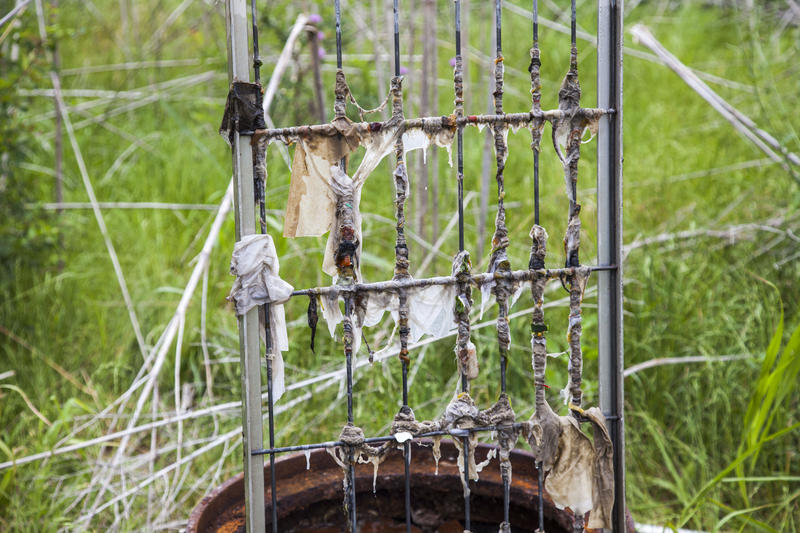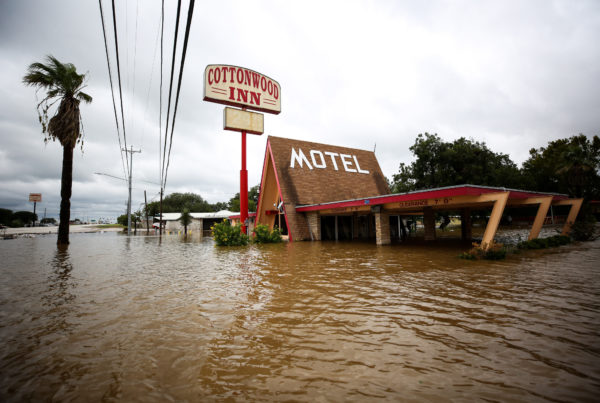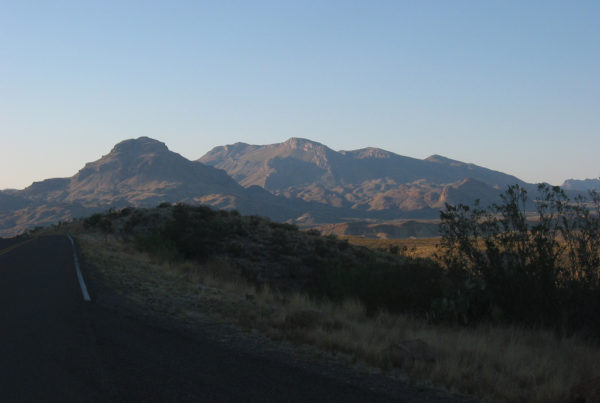From KERA:
In the last decade, a multibillion-dollar industry has emerged – and much of its products end up in our toilets. We’re talking about the wet wipes industry.
Companies that once just made baby wipes, like Irving-based Kimberly-Clark Corporation, now sell wet wipes in all shapes and sizes, for all ages, and some are categorized as “flushable.” As soon as those wipes go down the drain, though, controversy bubbles up.
The ‘rag’ issue
The odor at the Trinity River Authority‘s Wastewater Treatment Plant in West Dallas is pungent; more than 100 million gallons of raw sewage pass through here each day. Technical Services Manager Bill Cyrus is wearing an orange safety vest, a hard hat and a bushy salt-and-pepper mustache.
He doesn’t even flinch at the smell.
This plant is the first stop for much of Dallas’ wastewater, where all the solids that didn’t break down in the pipes are removed with bars and screens. These days, the screens are filled not only with paper towels and feminine hygiene products, but increasingly, wet wipes. Cyrus calls the mucky, off-white and gray material “rags.”
“The rag issue [has] gone up exponentially over the last five to six years,” he says.
When the rags build up, they can damage the machinery, plug pumps and back up the entire system, all the way back to your bathroom. Cyrus said maintenance like “de-ragging” and hauling the waste to the landfill cost $165,000 in 2015.
“It’s costing [the public] more to treat their wastewater. It’s tearing up equipment [and] costing a lot more manpower when they could just be throwing it in the trash can in the first place,” he says. “You know, out of sight, out of mind.”
Fatbergs form
Convenience is a big reason we’ve gone crazy for wet wipes, said Jennifer Christ with the U.S. market research firm Freedonia Group.
“The wet wipes industry has grown from being baby wipes and wipes to clean your hands after eating ribs to a $2.1-billion industry,” she says.
There’s a wipe for everything: to clean grease, to remove makeup and to apply deodorant, insect repellent and sunscreen. Even investor Mark Cuban got in on the wipes business after a pitch from the founders of Dude Wipes on “Shark Tank.”
The National Association of Clean Water Agencies says wipes are jamming pumps — even the supposedly flushable ones — costing U.S. utilities up to $1 billion a year. But the Association of Nonwoven Fabric Industries, which represents the makers of wet wipes, says wipes labeled “flushable” go through testing and are compatible with wastewater systems. So, what’s the deal?
“The industry has had a really hard time defining what it means to be ‘flushable,’” Jennifer Christ says.

















